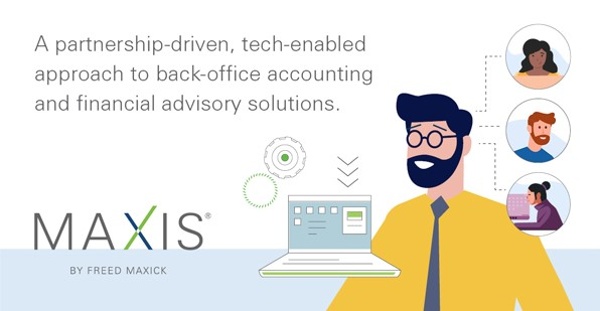Outsourcing non-core competencies such as accounting outweighs going at it alone
State and federal laws that govern not-for-profit organizations have become increasingly complicated. Most organizations utilize the services of certified public accountants (CPAs) for purposes of transparency, specifically with regard to compliance with their required annual audit and IRS Form 990 filing.
In recent years, resignations, retirements, and the inability to fill vacant internal accounting and finance positions have left organizations and their boards concerned about loss of productivity and business continuity. Not-for-profits are engaging CPA firms for outsourced accounting services because the partnership not only adds a consistent level of deeper industry experience, expertise, and perspective, but it provides organizations with the ability to easily scale personnel or services based on need, season, or function.
Stretching limited nonprofit resources
Outsourced accounting for nonprofits provides ancillary accounting and bookkeeping services, often enhancing an existing in-house role. It supplements organizations that don’t need a full-time employee on a daily basis, and provides reassurance to others concerned about disruption caused by staff turnover.
Confusion can occur in understanding the structure, titles, and roles of this blended team. Not all bookkeepers are accountants, and not all accountants are CPAs. In spite of the general similarities, there are profound differences that distinguish one from the other:
- A bookkeeper’s role is more administrative in nature, keeping track of the organization’s finances, recording journal entries, performing monthly invoicing, conducting bank reconciliations, and overseeing budgets.
- An accountant is a professional who has earned a bachelor’s degree in accounting. This professional has the education and knowledge to function as an in-house accountant performing more sophisticated tasks such as cash flow statements, routine audits, and tax return preparation. Accountants are typically given more responsibility with the organization’s finances and can grow into the role of controller or chief financial officer (CFO).
- Certified Public Accountant or CPA is a professional designation issued to qualified accountants by the Board of Accountancy for each state. Recipients 1) earned a bachelor’s degree in accounting, finance, or business, 2) completed 150 hours of education, and 3) have more than two years of public accounting experience. A candidate also must pass the Uniform CPA Exam, a series of rigorous exams whereby they demonstrate their knowledge, understanding, and skill. Ongoing continuing education is also required to maintain the CPA license. The highly-respected designation provides a structured level of standards in the accounting professional.
In addition to or in lieu of an internal accounting team, engaging a CPA firm is a smart business decision.
Outsourced Accounting Services: Strength on the bench
Like many other industries, accounting is feeling the talent void. More than 300,000 accountants and auditors left their jobs in the past two years, a 17% decline. As expected, baby boomers are retiring. Additionally, according to the Bureau of Labor Statistics, since 2019, before the pandemic and the Great Recession, record numbers of young (25-34 year olds) and mid-career (45-54) professionals fled the industry. According to the Wall Street Journal, "Companies’ accounting and finance departments in particular, which are crucial for managing financial operations, internal controls and financial reporting, are suffering from the lack of personnel.”
Unfortunately the gap won’t be filled by college graduates any time soon because accounting-school enrollments are down, significantly, with fewer students being lured by the profession’s prestige, and opting for careers in technology or engineering. Many college students don’t want to work in accounting. Even those who majored in it. Not-for-profit organizations continue to feel the effects. Talent acquisition and retention is an even greater challenge for not-for-profit organizations, which rarely have the ability to pay competitive, attractive, for-profit salaries and benefits.
Professional help: Finding an outsourced nonprofit accounting firm
Although hiring industry experts comes at a cost, there is a measurable ROI. So while the expense may be a concern, it shouldn’t be a deterrent.
Here are four keys to a successful partnership with an outsourced accounting firm:
1. First and foremost, recognize that technical expertise is an investment. When you engage dedicated professionals, you receive not only a breadth of knowledge, experience, and skill, but a deeper understanding of the industry and the issues that impact it. Whether tax, audit, or advisory, these specialists are immersed in industry-specific trends, benchmarks, and regulations, providing proactive, strategic, and technical contributions to your success.
2. Be prepared to customize the engagement(s) to meet your needs. An accounting firm provides a cost structure with options (hourly rate, retainer, project rate) as well as a range of accounting services that meet you where you are today. Just as important, a variety of services should be offered that are scalable, meaning that as your needs change, the ability to adjust services is fluid. Initially, you might engage tax planning and preparation services for organizations with tax-exempt status. Thereafter, you can look to implement internal controls and assess your cyber security. A one-stop shop makes your network more economical and strengthens relationships.
3. Do your part to manage the cost. Keeping the expense reasonable is dependent on fulfilling your role in the partnership. For example, staying abreast of your internal accounting will help alleviate the amount of work that an external accounting team will do. Organization records that are timely, accurate, and organized will support a much more efficient system and a less costly process.
4. Understand that a different kind of credibility is being demonstrated to your constituencies. A CPA firm provides risk mitigation at many levels, including alleviating the responsibility and potential liability of untrained staff and volunteers overseeing money-related tasks. Highly skilled accountants provide a superior level of ethical and professional standards and board members, funding sources, and bankers trust their responsible, reputable financial management.How Can Maxis Help with Outsourced Nonprofit Accounting Services?
MAXIS® by Freed Maxick is a high-tech outsourced accounting solution for nonprofits that automates processes to reduce unnecessary costs, meet deadlines, and free human capital. It’s cloud based, so it has better reliability, accessibility, timeliness, and security. Particularly for back-office functions, like bookkeeping, where automated systems keep information organized, updated, and timely, freeing your team to contribute their skills proactively. Outsourcing the accounting function also fills the talent gap in not-for-profit organizations with consistency and provides a safeguard against turnover in accounting departments. And the not-for-profit specialists on the MAXIS team work alongside yours to increase the quality of your organization’s financial information and support your mission-driven endeavors.
MAXIS is the ideal partner for organizations wanting better, more accurate control of their accounting. Schedule a complimentary consultation with Holly Hejmowski, Director of Assurance and Advisory Practice, at Holly.Hejmowski@freedmaxick.com to see how MAXIS can support your organization.

